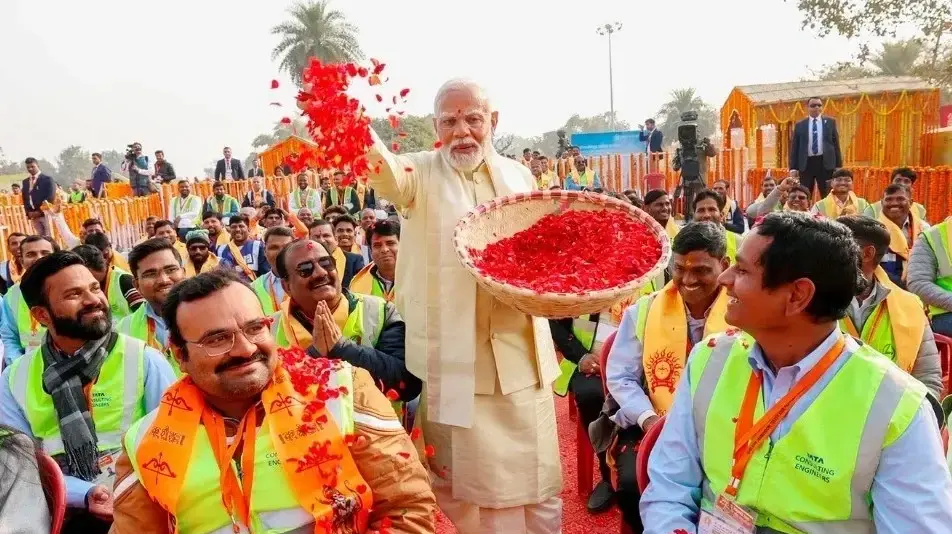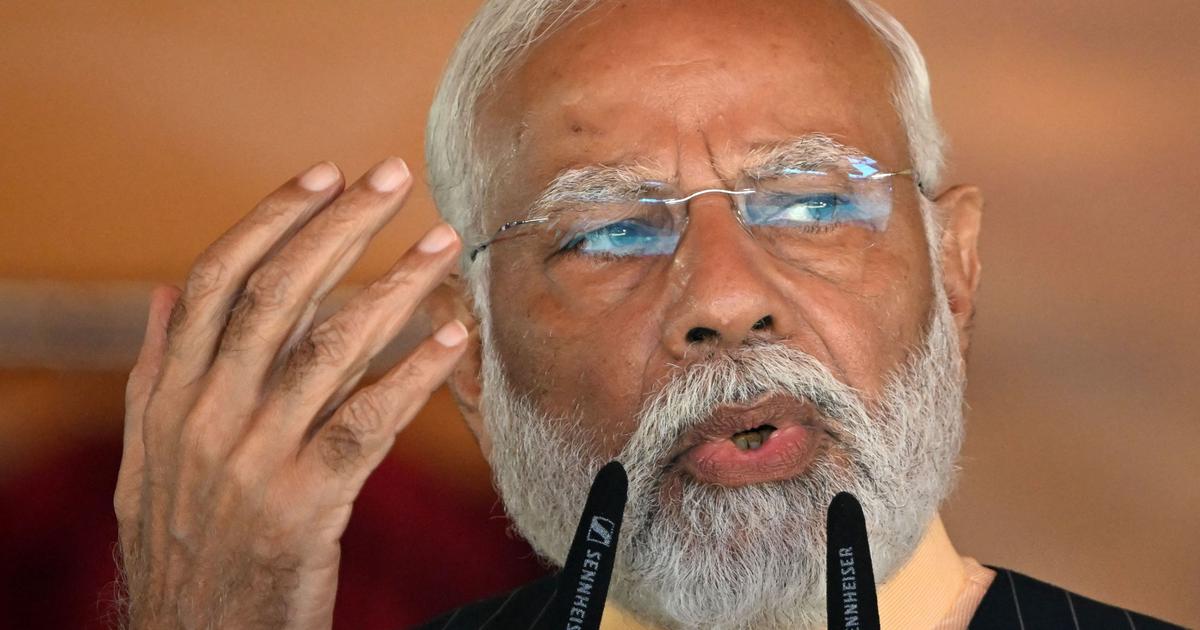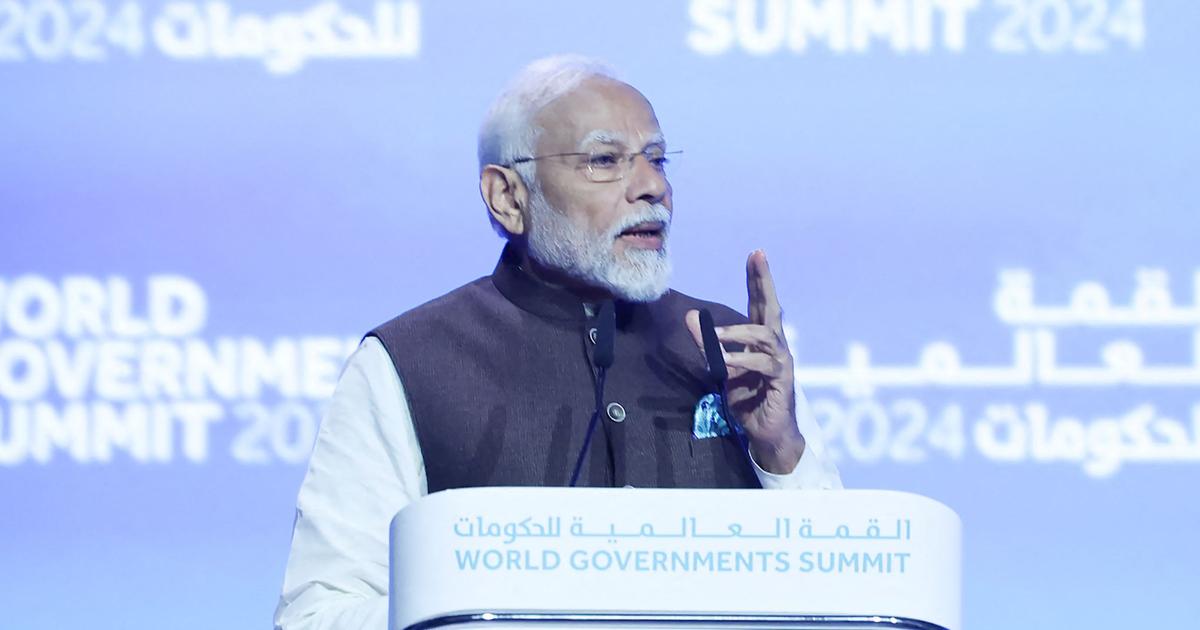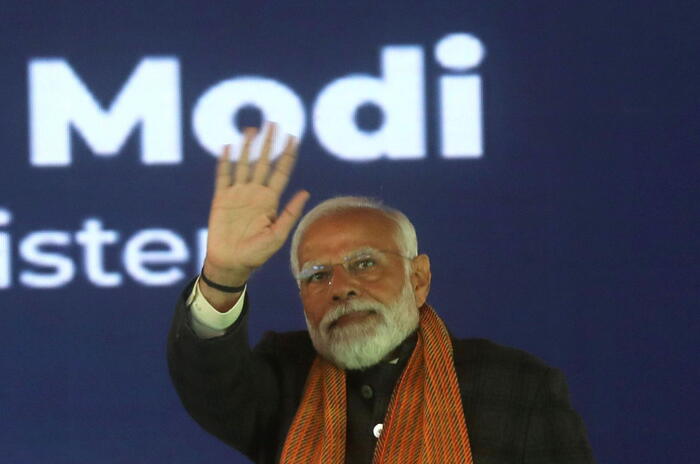Narenda Modi was elected India's new Prime Minister in May 2014. Although he advocates economically liberal approaches, many observers see Indian democracy endangered by his strong Hindu nationalist leadership style.
- Narendra Modi's political career began with the BJP (Bharatiya Janata Party).
- His anti-Muslim policies have been heavily criticized.
- He is known for his ascetic lifestyle.
New Delhi – Early on, Indian politician Narendra Modi was active in Hindu nationalist organizations. In the Bharatiya Janata Party, he climbed the political career ladder from 1988. As head of government of the state of Gujarat, Modi recorded economic and administrative successes from the beginning of the 2000s. In 2014, he was finally elected and sworn in as Prime Minister of India. However, international organizations have repeatedly noticed human rights violations and latent hostility towards Muslims in Modi's leadership style. Critics accuse him of wanting to establish a Hindu state and gradually undermine India's democracy.
Narendra Modi: His political career at a glance
- 1971: Modi joins the Rashtriya Swayamsevak Sangh (RSS)
- 1988: Joined the Bharatiya Janata Party (BJP)
- 1988: Appointed Secretary-General of the State of Gujarat
- 2002: Modi is elected Chief Minister of the BJP in Gujarat
- 2007 and 2012: Modi wins the elections as head of the BJP government
- 2014: Modi becomes Prime Minister of India
- 2019: Modi's second term as prime minister begins
Narendra Modi: From tea stall owner to politician
On September 17, 1950, Narendra Modi was born in Vadnagar, Mahesana district. He was the third of six children. He does not come from an upper caste, but belongs to the "OBC caste" (Other Backward Classes), which includes more socially disadvantaged groups of people in India. Since his father was a grocer and tea stall owner, Modi ran his own tea stand in Ahmedabad together with his brother as a teenager. At the tender age of 13, Modi became engaged. However, according to his own statements, he decided to leave his family and travel to India as a teenager.
His path led him, among other things, to the Ramakrishna mission, where his attempt to be accepted as a monk failed. Soon he found himself in politics. In 1971, he became an active member of the Hindu nationalist organization Rashtriya Swayamsevak Sangh (RSS). He further developed his interest in politics during his studies in political science at the University of Delhi. After completing his bachelor's degree in 1979, he earned a master's degree at the University of Gujarat four years later.
In 1985, he joined the Bharatiya Janata Party (BJP), which pursues a Hindu nationalist course similar to that of the RSS. Three years later, Narendra Modi made it to the general secretary of the BJP in her home state of Gujarat. Under his leadership, the BJP experienced an enormous political upswing in the 1990s.
Narendra Modi: His rise to become India's prime minister
In the early 2000s, Narendra Modi's political career continued to gain momentum. After a series of natural disasters, the head of government of the state of Gujarat announced his resignation in 2001. Modi became his successor and proved to be an openly Hindu nationalist politician. At the same time, however, he succeeded in modernizing the local administrative apparatus and helping Gujarat to a new economic boom.
Due to his successes, Modi was soon considered a promising top candidate of the BJP for the national parliament. In 2007 and 2012, he was once again able to secure his position as head of government in the state of Gujarat. In May 2014, he won the general election with an absolute majority as the BJP's lead candidate and was soon sworn in as prime minister.
Narendra Modi: The head of government under criticism
By this time, Narendra Modi was already internationally known for his strong Hindu nationalist leadership style. Above all, the politician's hostility to Muslims repeatedly heats up tempers. Especially for his behavior during the riots in Gujarat in 2002, Modi was criticized for years. In February 2002, many Hindu pilgrims were killed in a train fire. Although the cause was unclear, Hindu nationalist representatives of the country suspected a terrorist attack from the Muslim side.
There were violent clashes between Hindus and Muslims with numerous deaths (according to unofficial figures, over 2,000 Muslims). In addition, 150,000 Muslims are said to have been expelled and over 270 mosques destroyed. The Modi government was accused of tolerating and even supporting the violent crackdown. Apparently, Hindu nationalist extremists targeted the Muslim population – and were not prevented from doing so. Many international observers also accused Modi of human rights violations due to hostility to religion. The U.S. denied Modi an entry visa in 2005.
Narendra Modi: The policies of India's head of government
Although Narendra Modi is politically rather conservative, a liberal line is emerging in his economic policy. Among other things, his tax reforms led to a strengthening of the domestic economy. Thus, the politician was able to attract a growing number of foreign investors to India. In addition, modernization and digitization continue to be at the top of his agenda. One of the reasons for this is the expansion of competitiveness in competition with China.
However, Modi's political course has also repeatedly triggered protests in his own country. Among other things, in 2018 he initiated the cancellation of all 500 and 1000 rupee notes in a hurry, which caused turbulence in the financial sector. The politician also received fierce protests from Indian farmers for his liberalization tendencies in agriculture. Likewise, under his government, state health care and pensions were cut. Funding for the Ministry of the Environment has also been cut.
In recent years, Narendra Modi's foreign policy has increasingly focused on strengthening relations with countries in the Middle East. Due to new border treaties with the Indo-Bangladeshi enclaves, relations with Pakistan remained tense. In the fight against India's biggest rival China, Modi has also increasingly secured important contacts with the United States. Nevertheless, the Indian Prime Minister does not want to make India's role as a great power too dependent on other states. Especially in its competition with the economically much stronger China, the Modi government is pursuing a path to more self-determination.
Narendra Modi: India's head of government as a threat to democracy
Due to his increasingly authoritarian style of leadership, Narendra Modi is repeatedly accused of endangering India's democracy. The politician faces accusations of imprisoning innocent people as terrorists – preferably Muslims and supporters of religious minorities. In the meantime, however, Modi is also said to be taking strict action against critical journalists and opponents of the government. Among other things, he is said to be spreading fake news on the Internet with a veritable army of trolls and stirring up hatred against critics of his leadership style.
According to critics and observers of non-governmental organizations, Modi is supposed to follow India's successive transformation into an authoritarian Hindu state that excludes certain groups of people. Under his reign, Hindu nationalist violence has also increased sharply in recent years. Due to illiberal tendencies, the US organization Freedom House has now downgraded India's democracy to only "partially free".
Narendra Modi: India's head of government in private
Narendra Modi is also taking a tough line when it comes to his way of life. His strictly ascetic lifestyle is characterized by vegetarianism and the renunciation of tobacco and alcohol. With the election as prime minister in 2014, the private life of the politician also came to the fore. During the election campaign, it became known that Modi is married. However, according to his brother, the marriage was never consummated. The reason is said to be the celibate way of life, as it is cultivated by the members of the RSS organization. Narendra Modi and his wife Jashodaben – who presents herself in public as a traditionalist Hindu wife – have been living separately for decades.













